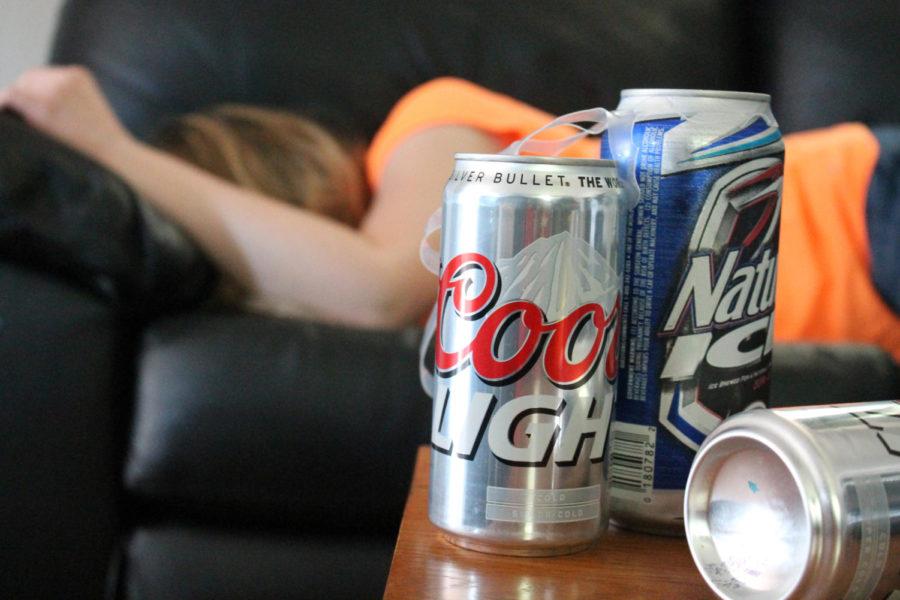Effects of too much alcohol consumption are damaging
October 8, 2013
Alcoholic beverages have a way of jeopardizing the body while also providing certain health benefits, but drinking too much of it does more harm than good.
The social aspects of drinking alcohol come with the territory of a college campus setting. The social phenomenon of drinking is more powerful than the genetics aspect when it comes to alcoholism, said Dr. Selden Spencer, neurologist at McFarland Clinic.
“This is the concern for the medical community, is that alcoholism is clearly prime time in the adolescent and young adult age,” Spencer said.
Drinking often loosens people up. The frontal lobes are responsible for the behavioral changes caused by drinking, Spencer said.
“It definitely allows people to speak more freely, like liquid courage, it allows people to get out there and be more outgoing,” said Kristin Cardinal, junior in animal science.
Alcohol is part of the American culture. A 21st birthday is a right of passage and is highly celebrated amongst young adults, explained Heidi Steckel, junior in apparel, merchandising and design.
“You only turn 21 once. Have that be exciting, have that be your day,” Steckel said.
Students have the potential to be exposed to alcohol and its effects in college. Experimenting with the substance is not an unusual college activity, however taking it to a severe level isn’t what the body is suited for, Spencer said.
“Chronic liver failure related to alcohol is the premiere problem,” Spencer said.
The liver is the organ in the body that processes alcohol throughout the body. However, the liver is not the only system in the body that is affected by alcohol consumption.
“It is an inhibitory agent in many respects in that the frontal lobes, which are your main stop agent, are not going to function as well as they usually do, so you are disinhibited,” Spencer said.
Alcohol has the ability to shut down organ systems in the body and cause both short and long term effects. A short-term effect of drinking an excessive amount of alcohol is blacking out.
“The black-out is created by turning off the brain stem nuclei that are key for keeping you awake,” Spencer said. Spencer also said that blacking out should not give permanent residual damage to the brain.
The chronic effects of drinking alcohol are that it can increase heart rates and raise respiratory rates.
“Once or twice a year at any university, you are going to hear about near death related to [those symptoms],” Spencer said.
Spencer compared blood alcohol levels with the level a blow to the head would be harmful to someone. Each person has a different level of tolerance for alcohol entering the body.
“If you are going to drink, be aware of your threshold,” Spencer said.







